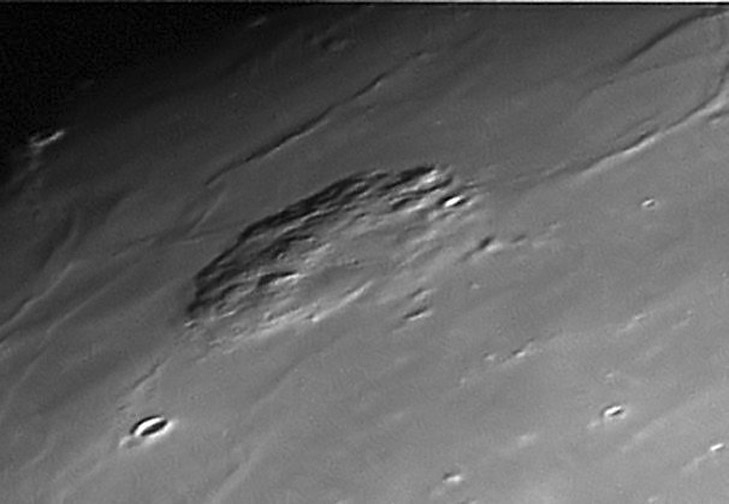Difference between revisions of "February 19, 2009"
| (3 intermediate revisions by the same user not shown) | |||
| Line 1: | Line 1: | ||
__NOTOC__ | __NOTOC__ | ||
=Corner of Mystery= | =Corner of Mystery= | ||
| + | <!-- Start of content --> | ||
<!-- ws:start:WikiTextHeadingRule:2:<h1> --> | <!-- ws:start:WikiTextHeadingRule:2:<h1> --> | ||
<!-- ws:start:WikiTextLocalImageRule:8:<img src="/file/view/LPOD-Feb19-09.jpg/58535160/LPOD-Feb19-09.jpg" alt="" title="" /> -->[[File:LPOD-Feb19-09.jpg|LPOD-Feb19-09.jpg]]<!-- ws:end:WikiTextLocalImageRule:8 --><br /> | <!-- ws:start:WikiTextLocalImageRule:8:<img src="/file/view/LPOD-Feb19-09.jpg/58535160/LPOD-Feb19-09.jpg" alt="" title="" /> -->[[File:LPOD-Feb19-09.jpg|LPOD-Feb19-09.jpg]]<!-- ws:end:WikiTextLocalImageRule:8 --><br /> | ||
<em>image by [mailto:john@jsussenbach.nl John Sussenbach], Netherlands</em><br /> | <em>image by [mailto:john@jsussenbach.nl John Sussenbach], Netherlands</em><br /> | ||
<br /> | <br /> | ||
| − | Rümker is a perennially weird formation. It is a large collection of overlapping low domes that is older than the surrounding lavas of Oceanus Procellarum and SInus Roris. John's new image nicely shows the two distinct parts of the landform. Most of it is higher, bumpier and older than the lower, smoother and younger eastern quarter. A Clementine [ | + | Rümker is a perennially weird formation. It is a large collection of overlapping low domes that is older than the surrounding lavas of Oceanus Procellarum and SInus Roris. John's new image nicely shows the two distinct parts of the landform. Most of it is higher, bumpier and older than the lower, smoother and younger eastern quarter. A Clementine [[November_6,_2006|image]] confirms these observations and illustrates that all of Rümker, including the low zone is a different coloration - and hence composition - than the adjacent mare. That is too bad because from a black and white image you could argue that the material covering the low area is the same as the mare, but that is not true. It does seem to be similar in morphology to mare lavas, but how would they get high enough to cover part of Rümker? It could be that the low zone is an area that has subsided, but that won't explain why it is older and bumpier, only why it is lower. <br /> |
<br /> | <br /> | ||
<em>[mailto:tychocrater@yahoo.com Chuck Wood]</em><br /> | <em>[mailto:tychocrater@yahoo.com Chuck Wood]</em><br /> | ||
| Line 13: | Line 14: | ||
<br /> | <br /> | ||
<strong>Related Links</strong><br /> | <strong>Related Links</strong><br /> | ||
| − | Rükl plate [ | + | Rükl plate [https://the-moon.us/wiki/Rükl_8 8]<br /> |
<br /> | <br /> | ||
<p><b>Yesterday's LPOD:</b> [[February 18, 2009|Wow!]] </p> | <p><b>Yesterday's LPOD:</b> [[February 18, 2009|Wow!]] </p> | ||
<p><b>Tomorrow's LPOD:</b> [[February 20, 2009|The Last of Eddington]] </p> | <p><b>Tomorrow's LPOD:</b> [[February 20, 2009|The Last of Eddington]] </p> | ||
<hr /> | <hr /> | ||
| + | {{wiki/ArticleFooter}} | ||
Latest revision as of 19:40, 18 August 2018
Corner of Mystery

image by John Sussenbach, Netherlands
Rümker is a perennially weird formation. It is a large collection of overlapping low domes that is older than the surrounding lavas of Oceanus Procellarum and SInus Roris. John's new image nicely shows the two distinct parts of the landform. Most of it is higher, bumpier and older than the lower, smoother and younger eastern quarter. A Clementine image confirms these observations and illustrates that all of Rümker, including the low zone is a different coloration - and hence composition - than the adjacent mare. That is too bad because from a black and white image you could argue that the material covering the low area is the same as the mare, but that is not true. It does seem to be similar in morphology to mare lavas, but how would they get high enough to cover part of Rümker? It could be that the low zone is an area that has subsided, but that won't explain why it is older and bumpier, only why it is lower.
Chuck Wood
Technical Details
14 February 2009 04.00 UT. C11 f/20 with DMK21UA4 camera
Related Links
Rükl plate 8
Yesterday's LPOD: Wow!
Tomorrow's LPOD: The Last of Eddington
COMMENTS?
Register, Log in, and join in the comments.



